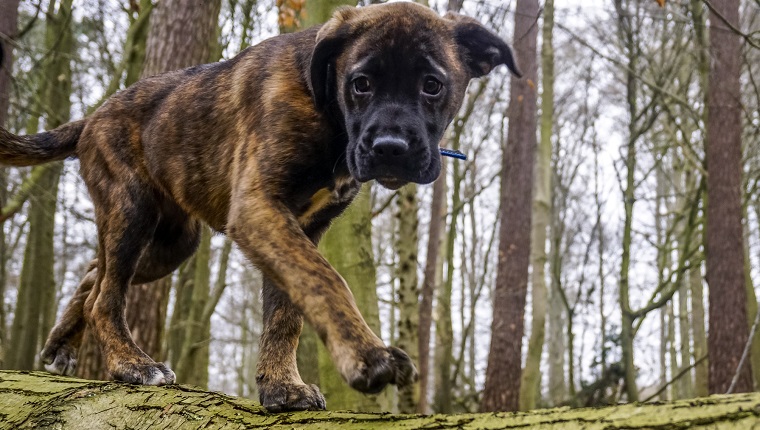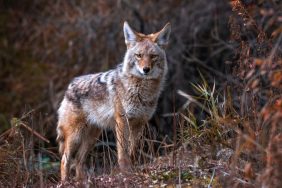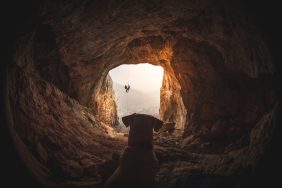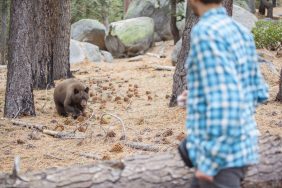More and more animals end up on the list of endangered species each year. Human activity is often to blame, and as natural habitats become unable to support their own ecosystems, animals start to move into human domains. It doesn’t help that humans are also stretching their living spaces into these habitats.
These growing changes in natural habitats can lead to some unwanted interactions between humans and animals, and that’s especially concerning with endangered predators, like bears. Conservationists and caring people face an uphill battle to both preserve these important endangered species and protect human lives.
For researchers and wildlife workers, the battle is about being creative in the ways they protect wildlife. With America and Russia’s surprising crisis of wandering polar bears, Karelian Bear Dogs are answering the call to humanely protect both bears and humans.
Dogs Who Scare Bears—For Protection
Most humans already fear bears in the wild. However, when bears enter human living spaces, like yards or public buildings, it can make matters worse. Humans’ fight or flight responses don’t always end up in favor of bears.
That’s why wildlife managers started looking at more unique ways to enforce protection without inflicting injury or fatality to these animals. Special dog breeds, also known as bear shepherds, came to the rescue.
Bear biologist Carrie Hunt started Wind River Bear Institute to train dogs for this job. All they need to do is bark and scare off bears that wander into cities and settlements. This prevents the bears from wandering into situations where they can be shot accidentally or out of fear.
“Bears are naturally afraid of canids because packs of coyotes can steal cubs,” says Hunt in an interview.
Hunt and her team found Karelian Bear Dogs to be most suited to the job. That’s why they have been on the mission to breed, train, and send these game hunting dogs to agencies that deal with endangered species protection.
The technique proves to be effective. Karelian bears were bred to hunt big, dangerous game, and they aren’t likely to back down or show fear around bears. They are also more likely to bark and sound quite intimidating. This can spook bears, preventing them from entering or returning to human territories.
Working With Dogs For Conservation
Researchers already have tapped dogs for conservation efforts in other ways, too. Conservation biologist Karen DeMatteo transformed one dog, named Train, from a “failure” of a sniffer dog to an energetic helper of endangered animals.
DeMatteo’s research team find elusive wild animals by investigating their droppings, and Train is the best dog for the job. Train came from the Humane Society as a rescue dog. His energetic disposition hindered his job as a narcotics sniffer.
DeMatteo used Train’s energy to scour hectares of land, sniffing out poop and helping researchers detect animal feces for future study. DeMatteo and her team used to rely on cameras mounted on various surfaces in a specific location. They needed a better solution to reduce the amount of time wasted waiting for animals to cross the cameras’ paths, not to mention the money wasted on stolen cameras.
Train puts his sniffing abilities to good use and makes the job easier for the team. Homeowners welcome sniffing dogs through their hectares compared to a team of strangers.
“They’re afraid you’re going to take their land or do something funny, and we explain that we just want to look for poop and find out where animals are moving,” shares DeMatteo. Sometimes, the homeowners even try to join the expedition.
Who knew dogs could play such a huge role in helping conservation efforts for wildlife? What do you think of these creative ways to protect endangered species? Let us know your thoughts below!
Related Articles:
Ruger The Anti-Poaching Dog Shuts Down 150 Poachers In Zambia
Rescue Dogs Sniff The Seas For Whale Poop In The Name Of Science









